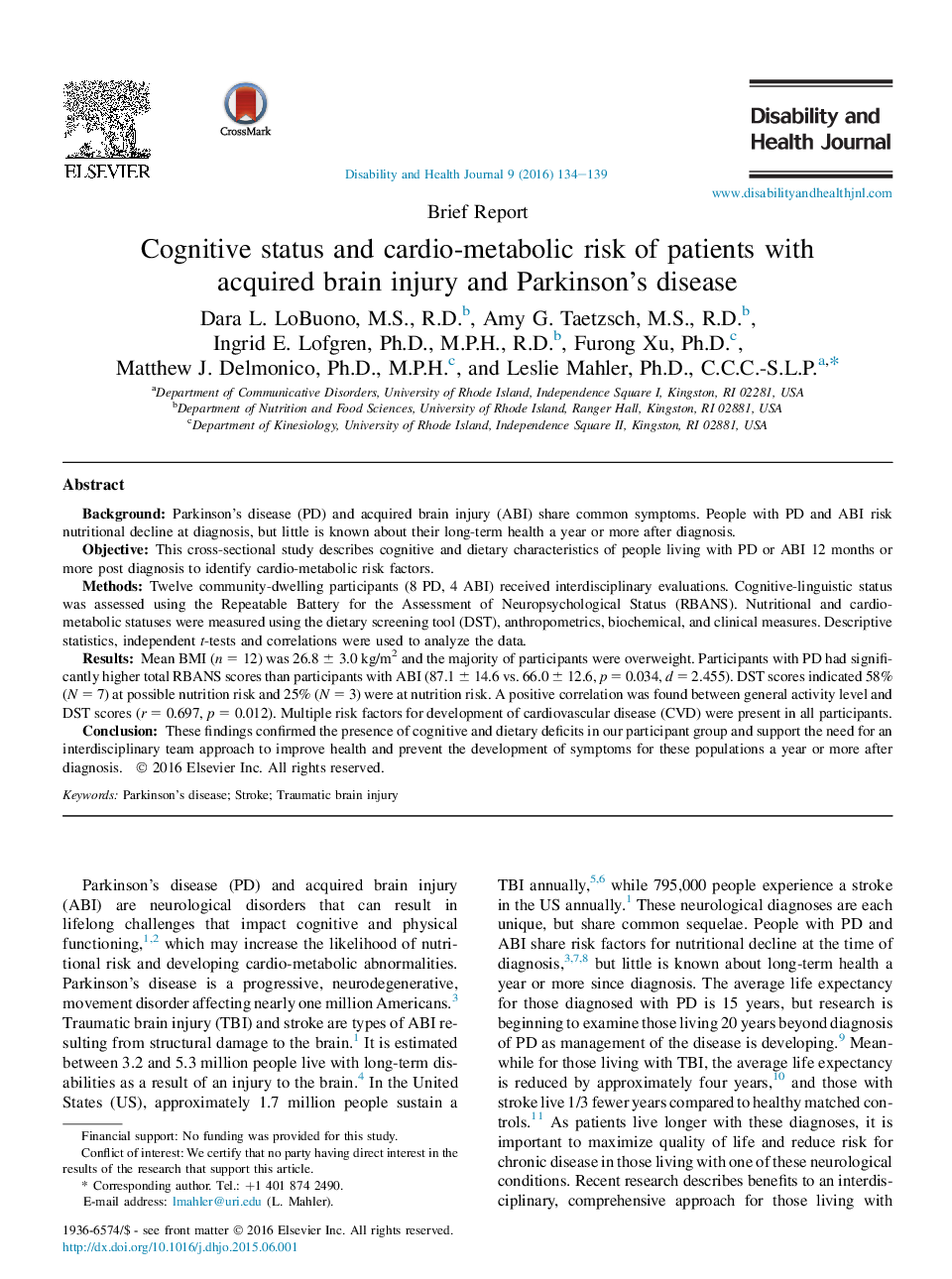| Article ID | Journal | Published Year | Pages | File Type |
|---|---|---|---|---|
| 6238723 | Disability and Health Journal | 2016 | 6 Pages |
BackgroundParkinson's disease (PD) and acquired brain injury (ABI) share common symptoms. People with PD and ABI risk nutritional decline at diagnosis, but little is known about their long-term health a year or more after diagnosis.ObjectiveThis cross-sectional study describes cognitive and dietary characteristics of people living with PD or ABI 12 months or more post diagnosis to identify cardio-metabolic risk factors.MethodsTwelve community-dwelling participants (8 PD, 4 ABI) received interdisciplinary evaluations. Cognitive-linguistic status was assessed using the Repeatable Battery for the Assessment of Neuropsychological Status (RBANS). Nutritional and cardio-metabolic statuses were measured using the dietary screening tool (DST), anthropometrics, biochemical, and clinical measures. Descriptive statistics, independent t-tests and correlations were used to analyze the data.ResultsMean BMI (n = 12) was 26.8 ± 3.0 kg/m2 and the majority of participants were overweight. Participants with PD had significantly higher total RBANS scores than participants with ABI (87.1 ± 14.6 vs. 66.0 ± 12.6, p = 0.034, d = 2.455). DST scores indicated 58% (N = 7) at possible nutrition risk and 25% (N = 3) were at nutrition risk. A positive correlation was found between general activity level and DST scores (r = 0.697, p = 0.012). Multiple risk factors for development of cardiovascular disease (CVD) were present in all participants.ConclusionThese findings confirmed the presence of cognitive and dietary deficits in our participant group and support the need for an interdisciplinary team approach to improve health and prevent the development of symptoms for these populations a year or more after diagnosis.
